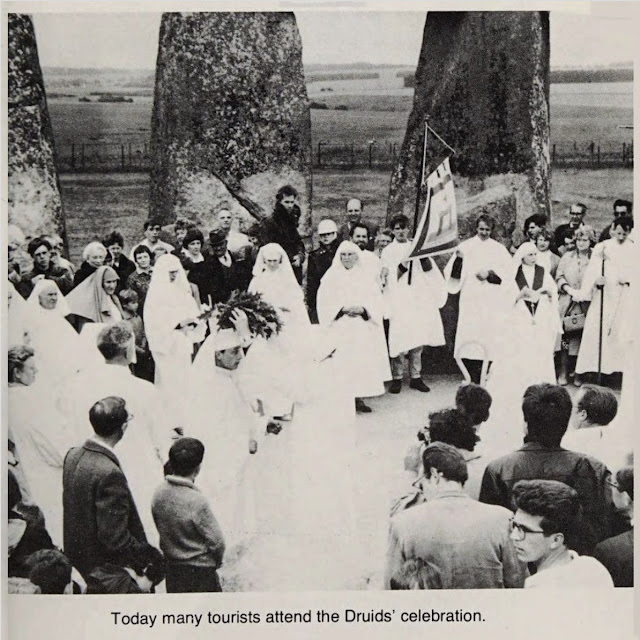*
Franz Sedlacek: Flowers and Insects (Blumen und Insekte), ca. 1939.
*
Jan van de Velde the Younger: The Sorceress, 1626.The Latin inscription along the bottom reads:
What evils Desire commands, in the small secluded place; who, by sweet incantation, overcomes the minds of the purest mortals, induces frenzy in everyone! But how quickly it slips by; Death overtakes brief life, brief delights. Laughing for a moment, in eternity suffering regret.
*
A chair with the shivers by Wilkinson & Rivera.
*
Druid news item, via endlesssummer.
*
Keiji Uematsu: Wave Motion I, 1976.
What I want to do is to make visible existence, visible connections and visible relations appear more clearly. And to cause non-visible existence, non-visible connections and non-visible relations to appear. And to cause visible existence, visible connections and visible relations not to appear.
*
Two ravens ring by Castro Smith.
*
George Schmidt, detail of a scherenschnitte hunting scene, ca. 1863.
*
*
In night when colors all to black are cast,
Distinction lost, or gone down with the light;
The eye a watch to inward senses placed,
Not seeing, yet still having powers of sight,
Gives vain alarums to the inward sense,
Where fear stirred up with witty tyranny,
Confounds all powers, and thorough self-offense,
Doth forge and raise impossibility:
Such as in thick depriving darknesses,
Proper reflections of the error be,
And images of self-confusednesses,
Which hurt imaginations only see;
And from this nothing seen, tells news of devils,
Which but expressions be of inward evils.
*
Fetch (as defined in Brewer's Dictionary of Irish Phrase and Fable): a preternatural vision of a living person, usually seen by a relative or friend. If occurring in the morning the visitation was a sign that the person, whose doppelgänger it was, would have a long and prosperous life; if in the evening it was a portent of imminent death:
She only looked with a dead, dead eye,
And a wan, wan cheek of sorrow:
I knew her Fetch!—she was called to die,
And she died upon the morrow.
John Banim, "The Fetch" (1857).
*
Like one that on a lonesome road
Doth walk in fear and dread ...
*
... the fear of one's double goes back to even ancient civilizations, as Otto Rank reminds us in his essay, 'Der Doppelgaenger' (1914), where he points out that in ancient traditions and folk beliefs, the double was the first conception of the soul and was related to beliefs that the shadow was a second self ...
*
During this time, she discovered that her house was haunted. It wasn't only she who felt it—she overheard adults talking about the ghosts as well. She realized that they were as frightened as she was, and were helpless to protect her. She already understood that the world was denser and more crowded than her senses could percieve: there were ghosts, but even those dead who were not ghosts still existed; she was used to hearing talk in which family members alive and dead were discussed without distinction. The dead seemed to her only barely dead.
*
We others are not like you. We are more prickly, more jittery, more restless, more reckless, more secretive, more desperate, more cowardly, more bold. We live at the edges of ourselves, not the middle places. We leave that to you. Did I say: more watchful? That above all. We watch you, we follow you, we spy on you, we obsess over you.
Steven Millhauser, 'We Others.'
*
... [W]e have created a technology that leaves no place for the dead. It is a realm of perpetual present, a realm of simulation, where the past is as fluid as the future. Deepfake, the technology that uses machine learning to create highly realistic false videos, can re-create its subject even posthumously. It can cause us to remember what never happened. No longer will we have any assurance that we are remembering the dead. And the dead will no longer remember us—we will have become unrecognizable.
Anne Michaels, "Mortal Soul, Moral Soul." Lapham's Quarterly: Memory, Vol. 13, No. 1, Winter 2020.
*
One need not be a Chamber -- to be Haunted --One need not be a House --The Brain has Corridors -- surpassingMaterial Place --Far safer, of a Midnight MeetingExternal GhostThan its interior Confronting --That Cooler Host.Far safer, through an Abbey gallop,The Stones a'chase --Than Unarmed, one's a'self encounter --In lonesome Place --Ourself behind ourself, concealed --Should startle most --Assassin hid in our ApartmentBe Horror's least.The Body -- borrows a Revolver --He bolts the Door --O'erlooking a superior spectre --Or More --
Emily Dickinson
*
'Goodbye forever! I'm flying away,' shouted Margarita, drowing out the waltz. She then decided that she had no need of the chemise and with an ominous chuckle she threw it over Nikolai Ivanovich's head. Blinded, he tumbled off the bench onto the bricks of the path.
Margarita turned to take one last look at the house where she had suffered so long, and in the lighted window she saw Natasha gaping with astonishment.
'Farewell, Natasha!' Margarita shouted and urged her broom upward. 'Invisible! I'm invisible!' she shouted even more loudly, and with the branches of the maple tree brushing against her face, she flew out over the gates and into the street. And the totally crazed waltz followed her aloft.
Invisible and free! Invisible and free!
Mikhail Bulgakov, The Master and the Margarita, translated by Diana Burgin and Tiernan O'Connor.
*








